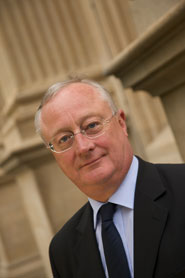Last week there was a lot of hullabaloo in the press over a speech by Professor Alison Richard, the Vice-Chancellor of Cambridge, at the annual Universities UK meeting. The headlines suggested that she had told ‘meddling ministers’ to stop interfering in universities. In fact this was untrue. She had simply reasserted that the central purpose of universities such as hers was academic excellence in both teaching and research. I have always said that the pursuit of academic excellence is the main driver for Bristol’s ambition. The combination of the press response to Professor Richard’s speech and an excellent article on the ‘passion’ for teaching by Tom Palaima in a recent issue of Times Higher Education has prompted me to write about the importance of academic excellence to Bristol. I feel it is particularly apposite as we start a new academic session that will incorporate our centenary.
Some pundits seem to have lost an understanding that universities’ strength lies in sustaining academic excellence at the heart of their activities, not diverting themselves away from it. Universities serve society best when they concentrate on their essential purpose. It is only by doing so that we will produce the very best graduates who will go on to lead and change society; that we will challenge orthodoxy and produce new knowledge that will transform lives; and that we will continue to attract the marvellous talent that typifies our academics. My experience is that our key partners understand and embrace that.
Tom Palaima draws attention to the New York Times describing universities some ten years ago as having become mere ‘career credentialling stations’. I am clear that Bristol is not one of those, nor is it what our best employers want us to be. They have made it clear to me that they want creative, independent, challenging, risk-taking and self-starting graduates, which is exactly what our undergraduate courses aim to produce. Education is an unpredictable journey, and so it should be. It is amazing how something learnt a long time ago can serve a current purpose. I remember reading The Glass Bead Game by Herman Hesse as a student. It had little to do with medicine (my subject of study), but its discourse about the role and purpose of pure intellectual pursuit has served me well over these past seven years as Vice-Chancellor.
My experience is that policymakers understand this well. They know that autonomous and self-directed universities are in their interests. Many have said so both privately and publicly. This does not mean that policymakers should have no influence. As a voter, I expect the democratically mandated government to have a higher education policy. In fact, I look for it in a manifesto. Approximately £17 billion of public money a year goes into universities from many different sources. That is about 1.3 per cent of GDP. To put it another way, in an average working year of 250 days, society pays taxes on three days’ work to support us. We simply cannot accept that support, their work and their wealth, without recognising that it places certain duties on us. One such duty is not to do whatever society wants without question, but to listen to and react to society’s needs, which change over time. It is also to recognise that we must work with our partners to improve society.
Inevitably, these relationships can produce tensions, especially when some commentators seek to diminish some of the disciplines taught in university or question the need for blue-sky research. Conversely, we do not help ourselves if we appear deaf to the questions of our partners. On balance, I think universities are well served overall in the United Kingdom. Of course, we have to fight our corner and we will do that best by being, first and foremost, excellent academic institutions. For Bristol, in its centenary year, there is only one possible option – we will run our business well, but we will be led by the academic ambitions of our students and staff.
